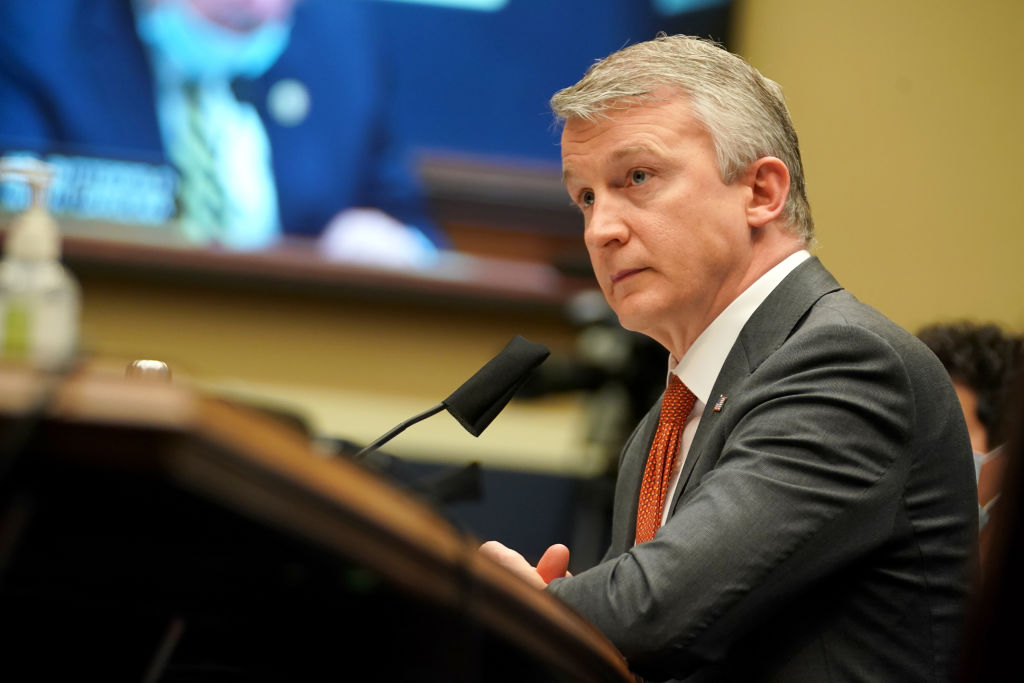Dr. Rick Bright predicts coronavirus vaccine will take longer than 12 to 18 months to develop


A free daily email with the biggest news stories of the day – and the best features from TheWeek.com
You are now subscribed
Your newsletter sign-up was successful
Dr. Rick Bright, the ousted federal official who was previously leading coronavirus vaccine development, told Congress on Thursday a COVID-19 vaccine may take longer to develop than 18 months.
Bright testified on Capitol Hill after filing a whistleblower complaint alleging his recent ouster was retaliatory, and he was asked when he thinks there could be a COVID-19 vaccine. Experts like Dr. Anthony Fauci, head of the National Institute of Allergy and Infectious Diseases, have cited a possible timeline of between 12 and 18 months. Bright, however, wasn't so sure.
"A lot of optimism is swirling around a 12 to 18 month timeframe, if everything goes perfectly," Bright said. "We've never seen everything go perfectly. ... I still think 12 to 18 months is an aggressive schedule, and I think it's going to take longer than that to do so."
The Week
Escape your echo chamber. Get the facts behind the news, plus analysis from multiple perspectives.

Sign up for The Week's Free Newsletters
From our morning news briefing to a weekly Good News Newsletter, get the best of The Week delivered directly to your inbox.
From our morning news briefing to a weekly Good News Newsletter, get the best of The Week delivered directly to your inbox.
Bright also expressed concern about rushing a vaccine and cutting out steps so that we don't have a "full assessment" of its safety. The 12 to 18 month timeline is from when a given manufacturer first started developing a vaccine rather than from right now, and it refers to how long until a vaccine can be used on an emergency basis rather than until it's approved by the FDA, Bright explained.
President Trump in recent weeks has expressed confidence there will be a coronavirus vaccine by the end of 2020. Testifying before Congress earlier this week, Fauci said it's "more likely than not" there will be a vaccine within the next one to two years, and he said earlier this month having a vaccine ready by January 2021 is potentially "doable," assuming "things fall in the right place." Brendan Morrow
A free daily email with the biggest news stories of the day – and the best features from TheWeek.com
Brendan worked as a culture writer at The Week from 2018 to 2023, covering the entertainment industry, including film reviews, television recaps, awards season, the box office, major movie franchises and Hollywood gossip. He has written about film and television for outlets including Bloody Disgusting, Showbiz Cheat Sheet, Heavy and The Celebrity Cafe.
-
 How the FCC’s ‘equal time’ rule works
How the FCC’s ‘equal time’ rule worksIn the Spotlight The law is at the heart of the Colbert-CBS conflict
-
 What is the endgame in the DHS shutdown?
What is the endgame in the DHS shutdown?Today’s Big Question Democrats want to rein in ICE’s immigration crackdown
-
 ‘Poor time management isn’t just an inconvenience’
‘Poor time management isn’t just an inconvenience’Instant Opinion Opinion, comment and editorials of the day
-
 Trump HHS slashes advised child vaccinations
Trump HHS slashes advised child vaccinationsSpeed Read In a widely condemned move, the CDC will now recommend that children get vaccinated against 11 communicable diseases, not 17
-
 FDA OKs generic abortion pill, riling the right
FDA OKs generic abortion pill, riling the rightSpeed Read The drug in question is a generic version of mifepristone, used to carry out two-thirds of US abortions
-
 RFK Jr. vaccine panel advises restricting MMRV shot
RFK Jr. vaccine panel advises restricting MMRV shotSpeed Read The committee voted to restrict access to a childhood vaccine against chickenpox
-
 Texas declares end to measles outbreak
Texas declares end to measles outbreakSpeed Read The vaccine-preventable disease is still spreading in neighboring states, Mexico and Canada
-
 RFK Jr. shuts down mRNA vaccine funding at agency
RFK Jr. shuts down mRNA vaccine funding at agencySpeed Read The decision canceled or modified 22 projects, primarily for work on vaccines and therapeutics for respiratory viruses
-
 Measles cases surge to 33-year high
Measles cases surge to 33-year highSpeed Read The infection was declared eliminated from the US in 2000 but has seen a resurgence amid vaccine hesitancy
-
 Kennedy's vaccine panel signals skepticism, change
Kennedy's vaccine panel signals skepticism, changeSpeed Read RFK Jr.'s new vaccine advisory board intends to make changes to the decades-old US immunization system
-
 Kennedy ousts entire CDC vaccine advisory panel
Kennedy ousts entire CDC vaccine advisory panelspeed read Health Secretary RFK Jr. is a longtime anti-vaccine activist who has criticized the panel of experts
